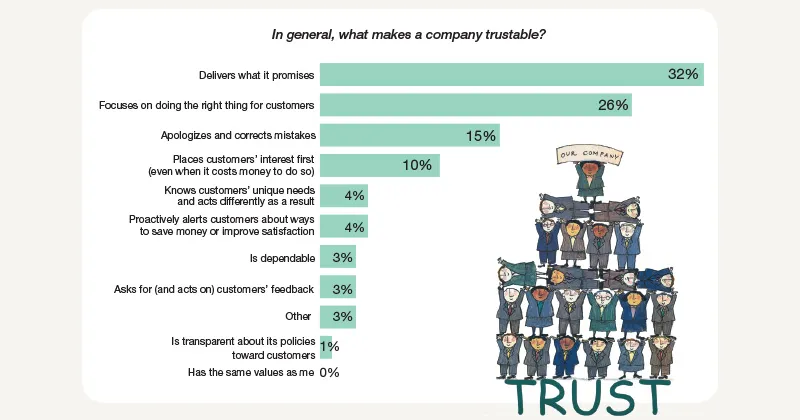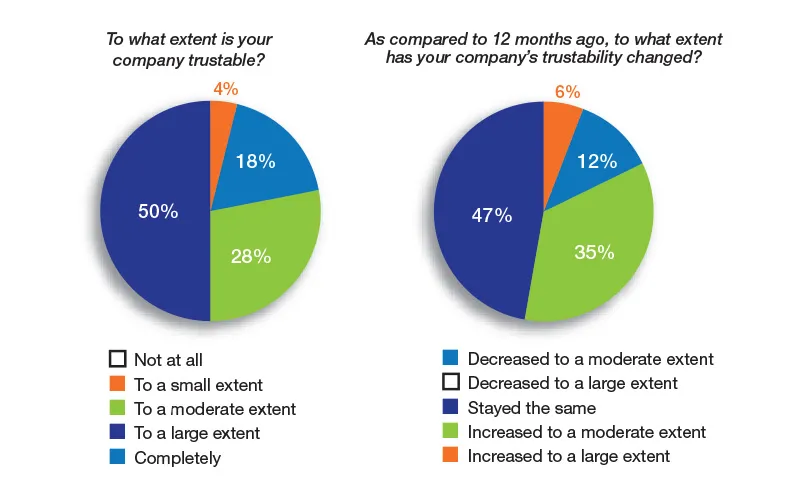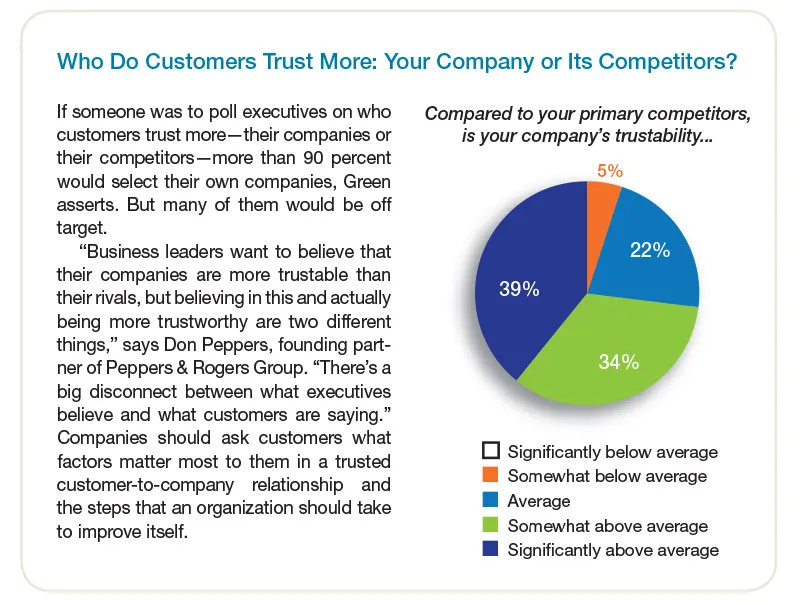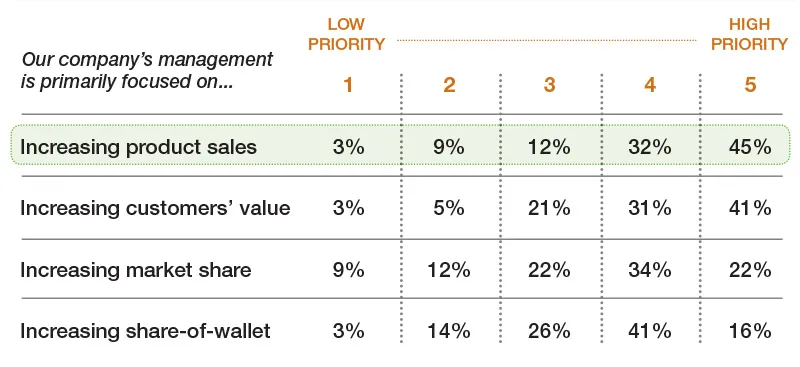Business leaders recognize the importance of earning customers’ trust. It’s a driving force for attracting and retaining customers. Still, many business leaders often overlook the two pillars of earning customer trust: demonstrating good intent (the willingness to act in customers’ best interests) and competence (the ability for an organization to deliver on its promises), say Don Peppers and Martha Rogers, Ph.D., founding partners of Peppers & Rogers Group.
According to the 2012 Building Customer Trust study, from Peppers & Rogers Group and Trusted Advisor Associates, 68 percent of the nearly 100 respondents view their companies as either being trustable “to a large extent” or “completely.” Yet many companies are considerably less confident about how effectively they deliver on key components necessary to warrant customer trust.
“Too many businesses continue to earn profits by taking advantage of a lack of customer knowledge or by capitalizing on customer mistakes,” Rogers says. “That won’t wash with socially connected customers who expect companies to be completely transparent to them.”
What Makes Your Company “Trustable”?
There are multiple factors that influence the level of trust that a customer has in a company. This includes consistently acting in customers’ best interests—even if it costs money to do so. Unfortunately, few business leaders pay adequate attention to customer trust. But they should.
“The consequences are enormous,” says Charles H. Green, founder and CEO of Trusted Advisor Associates LLC. “As customers increase their trust in companies, it streamlines interactions between customers and companies, it reduces selling costs, and it can increase customer lifetime value and profitability.”

Gauging Your Company’s Trustability
Business leaders want to believe that their companies are highly trustable. But, too often, executives equate trustability with individual components of trust, such as product quality or corporate integrity.
Companies should strive for complete trustability with customers. The difference between varying degrees of trust can have enormous business ramifications. “It’s similar to applying customer satisfaction to loyalty,” Green says. “You can score 5 out of 10 on customer satisfaction and see no real improvements in loyalty.”
According to the 2012 Building Customer Trust study, there is greater executive awareness around the importance of achieving customer trust. However, very little has been done to take action towards strengthening trust with customers, Green adds.


Aligning Business Strategy With Customer Centricity
Senior executives who want to improve customer trust will need to shift the company mind-set from what has for many organizations been a product-focused culture to more of a customer-centric approach that strives to meet customers’ needs and expectations, Peppers says.
This type of transformation won’t happen overnight. According to survey respondents, 45 percent characterize efforts to increase product sales as their highest priority. However, “companies that place customers first end up seeing incremental improvements in loyalty, sales, and profitability,” Green says.


















